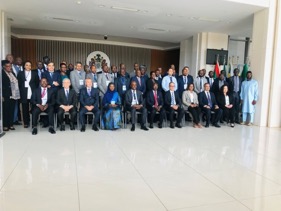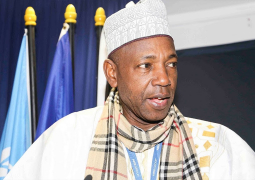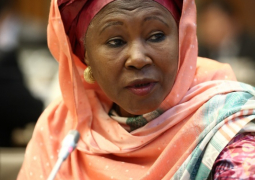
“From the domestic perspective, the Gambian economy remains resilient, gradually showing signs of recovery. This is supported by modest rebounds in tourism and private sector remittance inflows. Consequently, the economy is forecasted to grow by 5.6 percent in 2023, which is higher than the 5.2 percent projected for 2022,” he said.
He made this revelation at the 2023 Community of African Banking Supervisors Conference and Meeting at the International Conference Center on Thursday.
The Central Bank, through its Monetary Policy Committee (MPC) has implemented measures aimed at achieving a balance between the two main objectives of supporting growth but at the same time mindful of inflationary pressures,” he outlined.
He underscored that the Gambian banking system remains resilient and well-capitalised, with a risk-weighted capital adequacy ratio of 24.8 percent in December 2022, higher than the regulatory threshold of 10 percent.
“Another critical financial soundness indicator is the liquidity ratio, which stood at 63.7 percent in December 2022, well above the prescribed standard of 30 percent. Asset quality also remains impressive, with the non-performing loans ratio registering modest improvements. The ratio declined from 5.2 percent in December 2021, to 4.6 percent in December 2022,”
He stated despite the rapid growth of the financial systems over the years, access to finance remains low, “with low levels of financial literacy and under-developed financial markets. We must therefore endeavour to increase financial inclusion as a means of alleviating poverty in our societies.”
“While the future is gradually looking brighter, we remain cautious, aware of the uncertain geopolitical tensions and volatile commodity prices which could be exacerbated by prolonged war in Ukraine and continued supply constraints, with adverse effects on the modest achievements registered so far,”
“We must redouble our efforts towards achieving the common goals of expanding trade between our nations, accelerated economic growth, stabilized exchange rates, lower inflation, and the promotion of macroeconomic stability,” he advised.
According to him, the expected outcomes of the deliberations should be aimed at facilitating effective regulation of the financial systems and engendering opportunities for the business and banking communities to increase access to finance for the citizens.
“Through your deliberations, you will exchange ideas on effective supervisory policies, systems, and procedures, particularly on emerging issues in finance, such as how to deal with the impact of climate change and new technologies in our financial system.”



